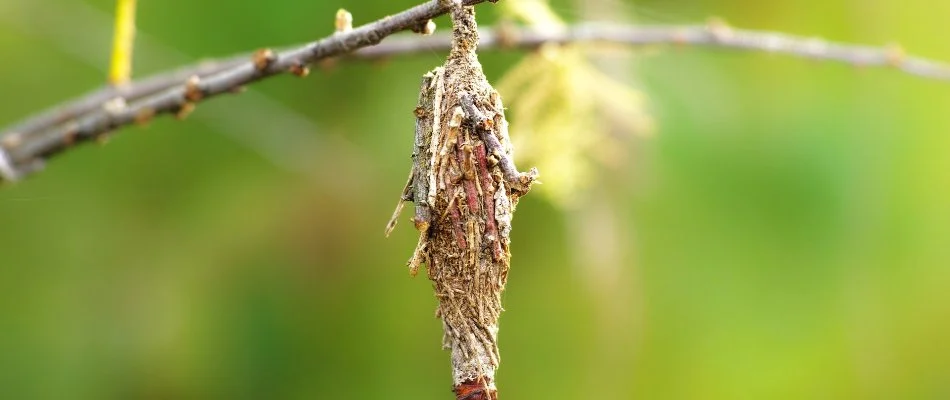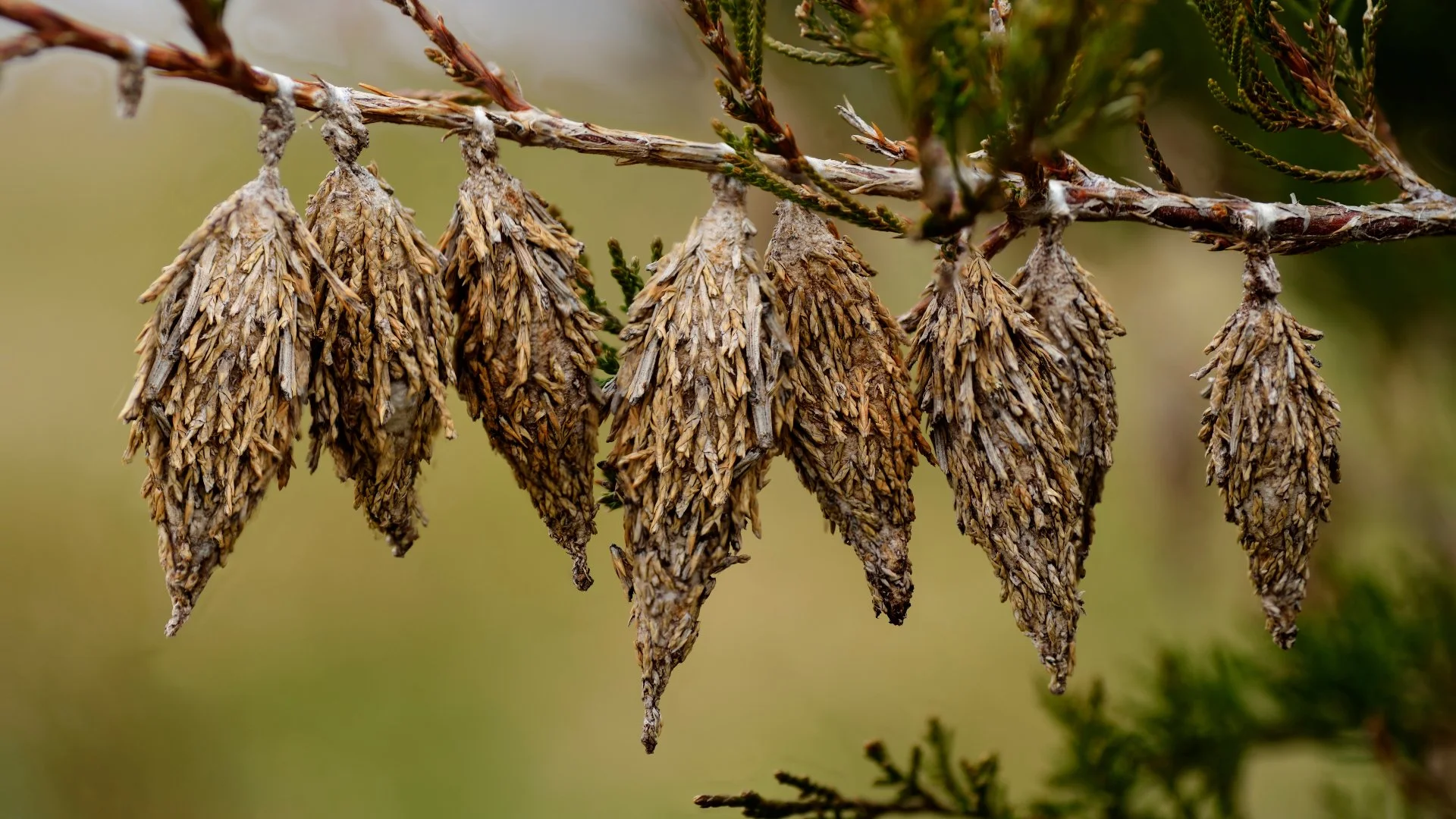Bagworms are sneaky pests that can invade your plants in Maryland and cause extensive damage if not dealt with promptly. They are the larvae of moths and get their name from the protective silk bags that they create to protect themselves from predators. Bagworms use these bags to safeguard themselves when they feed on your plants, which is how they cause damage to them. Their voracious appetite can lead to the quick defoliation of your trees, which can affect both their health and appearance. These pests are typically an issue during the summer, so you'll want to keep an eye out for them during this season. If you do notice bagworms on your plants, you'll want to schedule professional curative treatments to eliminate them.
What are bagworms, and what kind of damage can they cause?

Bagworms are small insects that are the larval form of bagworm moths. It's rare to see the bagworm itself on your trees or shrubs. Instead, the most noticeable thing about them is the spindle-shaped bags that they create hanging from the branches. That's where they also got their name. They create protective bags from silk and plant debris to shield themselves from predators while they feed.
Bagworms are known for their voracious appetites, munching on needles and leaves to survive. As they feed, they cause defoliation and weaken the plants. In severe cases, bagworms can even kill trees and shrubs. The damage caused by bagworms can be particularly severe for evergreen trees, as they do not regenerate their foliage as quickly as deciduous trees.
Bagworms are typically an issue during the summer.
Bagworms are typically a threat to your plants during the summer months. Bagworms are most active during the hottest months of the year, and they can cause significant damage to trees and shrubs if left unchecked. Because of this, you'll want to be extra vigilant during this time to keep an eye out for them. If you notice their bags on your plant's branches, it's best to take action quickly. The longer they remain on your plants, the more damage they can cause. Without intervention, these insects can even kill your plants.
If you notice bagworms on your plants, schedule curative insect control treatments!
If you notice bagworms on your plants, it's important to take action right away. While some property owners might attempt the DIY method, the best way to deal with bagworms is to schedule professional curative treatments. When you schedule this type of service, plant care professionals will come out to your property to confirm the presence of bagworms. They will also determine the extent of the issue and apply targeted curative treatments to get rid of them. It's important to take prompt action when it comes to bagworm infestations to protect your plants from further damage!
Give us a call today to schedule our tree and shrub insect control service!
Bagworms may be small, but they pack a mighty punch that can cause serious damage to your plants. As soon as you see signs of a bagworm infestation on your plants, don't think twice—reach out to our professionals right away. Our team at Liqua-Grow Turf offers a tree and shrub insect control service, where we will apply curative treatments effective against various plant pests, including bagworms.
This service is offered to commercial and residential property owners, along with HOAs, in Westminster, Eldersburg, Ellicott City, and nearby areas in Maryland. Give us a call at (410) 795-7900 to sign up for this service and take the first step toward protecting your plants from bagworms!



Comments (0)
Thanks for your comment!
Thanks for your feedback! Your comments have been successfully submitted! Please note, all comments require admin approval prior to display.
Error submitting comment!
There is a problem with your comment, please see below and try again.